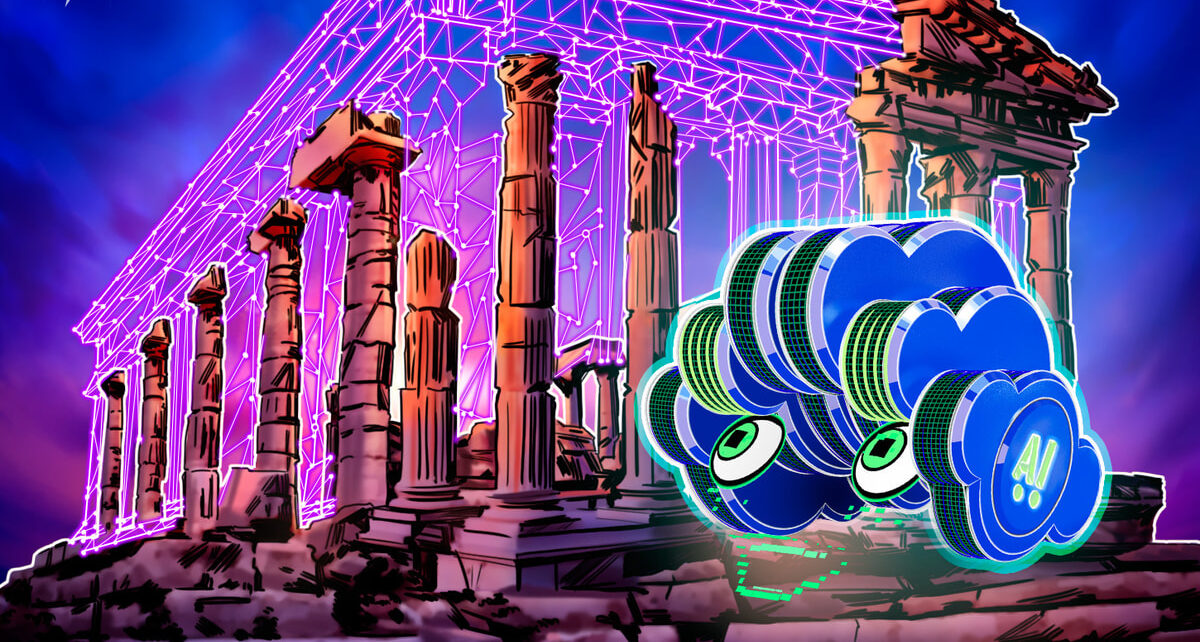The emergence of generative synthetic intelligence (AI) has introduced fashionable society with new means for understanding and visualizing the world.
Meta, the mother or father firm of social media platforms Fb and Instagram, just lately launched new AI video and image-generating tools for creators, whereas OpenAI up to date the premium model of its well-liked AI mannequin ChatGPT to incorporate {powerful} text-to-image producing capabilities.
Because the tempo of AI improvement continues to speed up quickly, many artists are confronted with the challenge of embracing the new tools as part of their workflow whereas nonetheless managing to maintain their distinctive imaginative and prescient.
One such artist is the New York-based Greek architect Tina Marinaki, who has integrated AI instruments into her inventive work and, within the course of, created an internet neighborhood of practically 20,000 customers on Instagram by “Athens Surreal,” which follows her reimagination of the traditional Athenian cityscape.
Cointelegraph spoke with Marinaki about incorporating AI into her work and the way she reenvisions her dwelling metropolis utilizing rising know-how.
She defined that the idea of Athens Surreal stemmed from the will to grasp “the way in which the completely different AI instruments work” whereas testing concepts for a “completely different, typically romantic, typically utopian, futuristic Athens.”
Technical difficulties
In response to Marinaki, one of many major difficulties working with text-to-image AI techniques is “translating” a picture description to speak a imaginative and prescient with the AI techniques. “The choice and even the order of particular phrases may end up in fully completely different photographs,” she defined.
“Different challenges are present in algorithmic ethnicity, gender or different biases when algorithms are educated utilizing biased information.”
For instance, she reported {that a} larger variety of males can seem in AI-generated photographs even when a consumer’s parameters don't have any point out of gender, and in some circumstances, AI can create “racist or stereotypical photographs.”
Regardless of its biases in text-to-image era, these weaknesses can result in strengths if educated appropriately. Marinaki stated that AI might “considerably contribute” to the sector of knowledge optimization within the building sector by suggesting the “supreme parameters” based mostly on the information entered within the building of a mission.
Tradition-to-image era
One of many important elements of Marinaki’s work by Athens Surreal is translating features of Greek tradition into AI techniques. Nevertheless, on condition that tradition is the product of lived human experiences, the query of whether or not machines can precisely translate the essence of tradition comes into play.
Associated: ChatGPT, Midjourney, other AI tools to make their way into EU legislation
In response to Marinaki, that is exactly the place human worth is exemplified in machine creation. “I imagine that the outcome, though generated by a machine with an outlined randomness algorithm, continues to be pushed by human creativeness,” she stated.
“Consequently, my data of Athens contributed in transferring the proper phrases and descriptions to the AI instruments to interpret Greek tradition.”
She stated her architectural background helped within the choice and reinterpretation of the spatial landmarks or correlations, unusual Athenian scenes and habits:
“The machine can solely be taught and recreate the data it consumes, so one ought to educate the AI device a subjective essence of the tradition.”
Marinaki stated the response from her Greek followers to her reimagined Athens is “principally constructive and enthusiastic.” In response to her, the neighborhood sees the photographs as “nonrealistic photographs of a metropolis we wish to dream of — surreal unusual views that we might typically prefer to criticize, to deliver laughter or encourage.”
Previous meets future
Greece is an instance of a spot that has firmly held on to a lot of its previous regardless of the world’s developments.
Marinaki described know-how’s developments as a device to assist “protect traces of the previous” and even assist “recreate them to perfection.”
Equally, she stated it's essential for societies to create “a wholesome relationship with AI” and develop regulatory frameworks that “will defend society from problems with propaganda politics and the unfold of pretend information, pirated mental property, or stereotyping and algorithmic bias.”
In October, Cointelegraph reported that the Greek authorities established a new AI advisory committee to create a nationwide technique for coping with the know-how.
“Solely then will synthetic intelligence have the ability to be an omnipotent, cutting-edge know-how device,” Marinaki stated.
Journal: ‘AI has killed the industry’: EasyTranslate boss on adapting to change




